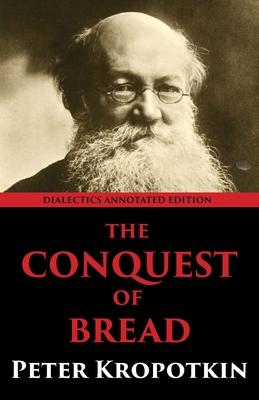In The Conquest of Bread, Peter Kropotkin describes how the revolution can achieve a free, egalitarian, and self-sufficient anarcho-communist society. In issuing his argument for this society, Kropotkin critiques the various economic systems, from pure capitalism to state-run socialism to collectivism. Additionally, he provides the reader with a history of the revolution, analyzing the failures and successes of past revolutions, including the French revolutions of 1789, 1848, and 1871. Throughout, Kropotkin emphasizes humanity's ability to cooperate and advance through mutual aid and science - abilities critical to the success of the revolution and post-revolution society. The Conquest of Bread is an important and enduring work of political theory and anarchist thought.
This Dialectics annotated edition includes nearly 100 new historical and biographical footnotes and notes on the English translation from the original French text. Also included are nine historic lithographs, etchings, and woodblock prints depicting the periods discussed in the book. These notes and illustrations help to make The Conquest of Bread as relevant today as when it was first published. Peter Kropotkin (1842-1921) was born a Russian prince but abandoned his title at the age of twelve. He escaped from his first imprisonment and lived the bulk of his life in exile. Though he was a skilled geographer, he is most known for being an important theorist of anarchism and anarchist communism.
